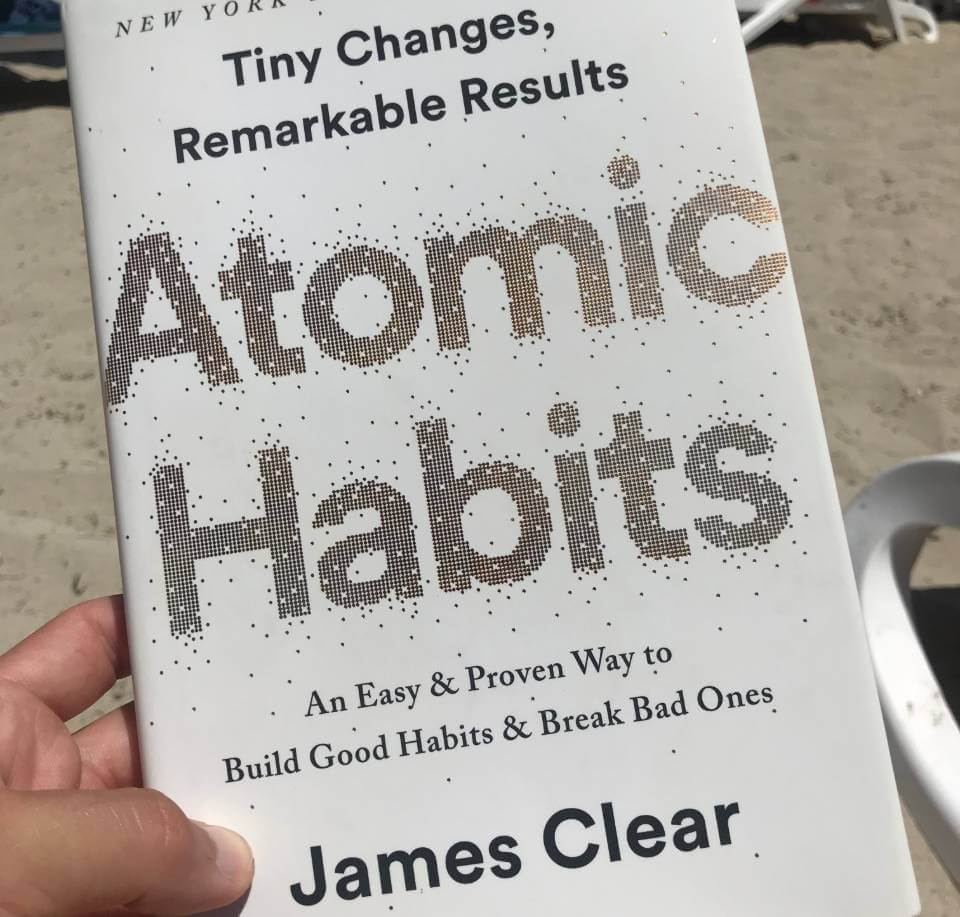tl;dr: Good book about moving towards your goals with (very) small steps. Various insights into real-life stories, new perspectives, and practical tips on destroying bad or establishing new habits. Recommended if you like James articles and his style. The book is full of this: Go, buy, and read it - Atomic Habits by James Clear.

Why did I read this book?
I found James Clear via Issue #333 of the Software Lead Weekly Newsletter with his article on The 3 Stages of Failure in Life and Work (And How to Fix Them). His other articles also caught my interest.
I always had a high interest in productivity, time management, and getting better as yesterday. I like to learn, to know the context and why we are doing it what we are doing. Good habits can help you with all of this. Maybe there are some new tricks in this book I never heard of?
What do I like about this book?
Content
What James presents is enjoyable, actionable, and easy to follow. He provides a simple and proven four-step framework on how to establish new habits. Underlined with thousands of good examples from real life. By doing this, he doesn't hide the complex reality and mentions areas like how hard it is to stick to your habits and how he overcomes this. It will provide you new perspectives.
Maybe if you really wanted it, you'd actually do it. But the truth is, our real motivation is to be lazy and to do what is convenient. And despite what the latest productivity best seller will tell you, this is a smart strategy, not a dumb one
James Clear in Atomic Habits: An Easy and Proven Way to Build Good Habits and Break Bad Ones
James is not perfect
He has spent some time diving into the theory of habits, but he still keeps realistic. James is mentioning that it is inevitable that life will interrupt you [and your habits] at some point. It emphasizes the feeling that this is normal and human. I like it.
Reality
I especially like how James points out the hard truth of our lives: Habits can get automatic and boring at some time; If you really want something, you do it. Otherwise, you don't want it enough; We still need to act on it. He doesn't try to hide it.
Your actions reveal how badly you want something. If you keep saying something is a priority but you never act on it, then you don't really want it. It's time to have an honest conversation with yourself. Your actions reveal your true motivations.
James Clear in Atomic Habits: An Easy and Proven Way to Build Good Habits and Break Bad Ones
Side Stories
A lot of chapters start with small real-life Stories. Like how people have benefitted from little habits (how Jerry Seinfeld has trained writing jokes) or to underline a particular behavior (like the influence of group pressure by Solomon Asch). It is fun to read them. They don't come along like typical "success stories", but more in a style that you can relate to.
Awareness
James emphasizes the small things in your life and the world. He highlights small steps. He shifts your attention to "the obvious, writes about this, and lets you think for a while. It is about the small steps (1% better or micro habits) and the long run. Not the big shot for the short term.
"Academic" notes
At the end of the book, there are 25 pages of references incl. Links, books, and doi's. These enable you to dive deeper into every area mentioned as in an academic report.
[Establishing a habit] is a continuous process. There is no finish line. There is no permanent solution.
James Clear in Atomic Habits: An Easy and Proven Way to Build Good Habits and Break Bad Ones
Chapter Summaries
Every chapter ends with a few key sentences. When you have finished this chapter, what should you keep in your mind? I find those helpful and pleasant to look at later (e.g., in a reference style).
What can make this book better in the next edition?
Bonus chapters
There are bonus chapters mentioned about how to apply the ideas from the book to business or parenting. Sadly they are only available online. Especially when you read this book at a location where you don't want the internet. I would love to see those included in the book, even if this would raise the price.
Would I recommend reading this book?
Rather yes.
I enjoyed this book and had a good time reading it. James is pointing out several new perspectives to look at things that seem to be simple, but in reality, they are not. I am motivated to change my style while trying to establish new habits, stop bad ones, and apply a few presented techniques.
However, I think this book is not for everyone. You need to be interested in the area of improving yourself; otherwise, you might not stick to complete this ~270 pages book. If you are not sure about this for yourself, start with James Interview at CBS This Morning or the articles on his website.
I recommend this book to everyone who ...
- has an interest in getting better each day
- wants to reach a goal but don't know how to start
- loves getting context on why humans are behaving like they do when it comes to habits
Is there more to read?
Yes, of course:
- Interview with James Clear at CBS This Morning with Why habits are the "compound interest" of self-improvement
- Articles by James Clear on his website
- Flow State
- The article trivago Flow Lab: The Science of Productivity by Sören, Kirill, and Philipp
- The book Getting Things Done: The Art of Stress-Free Productivity by David Allen